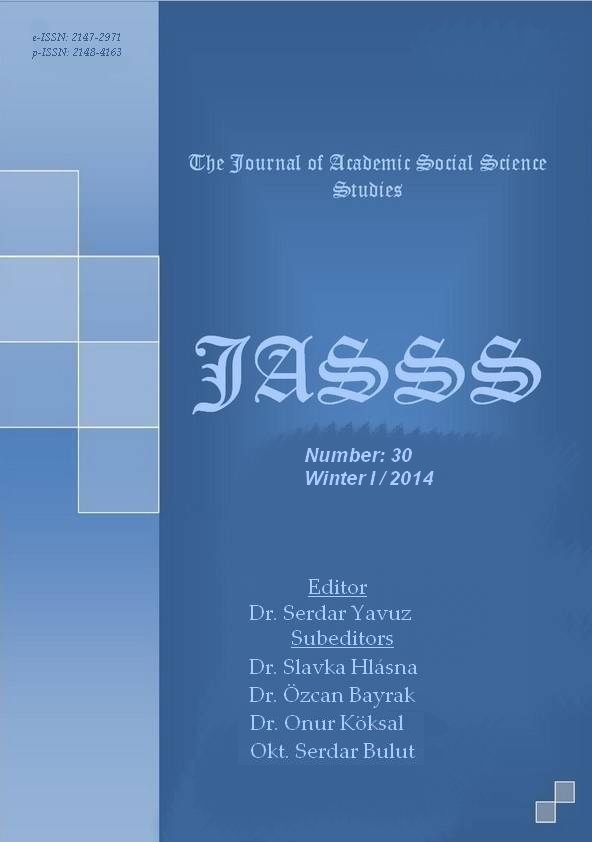Author :
Abstract
William Shakespeare’in başyapıtlarından biri olan Hamlet, babası amcası tarafından öldürülen ve tahta çıkışı amcasının annesiyle evlenmesiyle engellenen Danimarka Prensinin trajedisini anlatmaktadır. Babasının hayaletiyle konuştuktan sonra sürekli eylemle tasarlama, düşünme arasında bocalayan Hamlet, tereddüttün bir modeli haline gelir. Eserin ismiyle aynı adı taşıyan karakteri büyük bir zihinsel çeviklik ve duygusal derinlikle çizen ve eserinde suça takıntı, ensest, kendi kendine yapılan konuşmalar ve konuşmada belagat gibi iç unsurlara odaklanan, eserlerinin antik eserlerin yeniden okunmasıyla oluşturulduğu kabul edilen Rönesans insanı Shakespeare, Poetika da tanımlanan Aristo prensiplerinin yerine Seneca trajedilerine yaklaşır. Hamlet ‘in Seneca trajedilerine yakınlığı hem tematik hem de biçimsel alanda gözlenebilir. Aristo tarafından saptanan trajediye ayrılan süre, karar verme yanılgısı, farkına varma gibi iç unsurlar ya Hamlet’te yoktur ya da bunlar Aristo’nun görüşlerine uymamaktadır. Bu çalışmanın amacı, dramatik zevkle insan ruhunun derin bir incelemesi olan Hamlet ‘in Poetika da ileri sürülen Aristo prensiplerinin yerine Seneca trajedilerinin etkisi altında yazıldığını ispatlamaktır. Anahtar Kelimeler: Hamlet, Seneca Trajedileri, Poetika, İnsan Ruhu, Aristo
Keywords
Abstract
Hamlet, which is one of the masterpieces of William Shakespeare, narrates the tragedy of the Prince of Denmark whose father is killed by his uncle and his rightful ascension to throne is prevented by his uncle’s unjust marriage to his mother. After speaking with his father’s ghost, Hamlet, who oscillates incessantly from action to contemplation, becomes a model of hesitation. By portraying the titular character with a profound intellectual agility and emotional depth, and by focusing on such internal elements in his work as obsession with crime, incest, expository soliloquies and eloquence in speech, Shakespeare, who is a Renaissance man and whose works are accepted to have been formed with the effect of the re-reading of the ancient works, draws near to Senecan tragedies instead of Aristotle’s principles defined in Poetics. Hamlet‘s proximity to Senecan tragedies can be observed both in thematic and stylistic domains. Almost all the internal principles such as the span allotted to tragedy, error of judgment and recognition set by Aristotle, either lacks in Hamlet or does not suit Aristotelian notions. The objective of this study is to prove that Hamlet, which is a deep examination of the human soul with dramatic excitement, is written under the effect of Senecan tragedies instead of Aristotelian principles set forth in Poetics.





